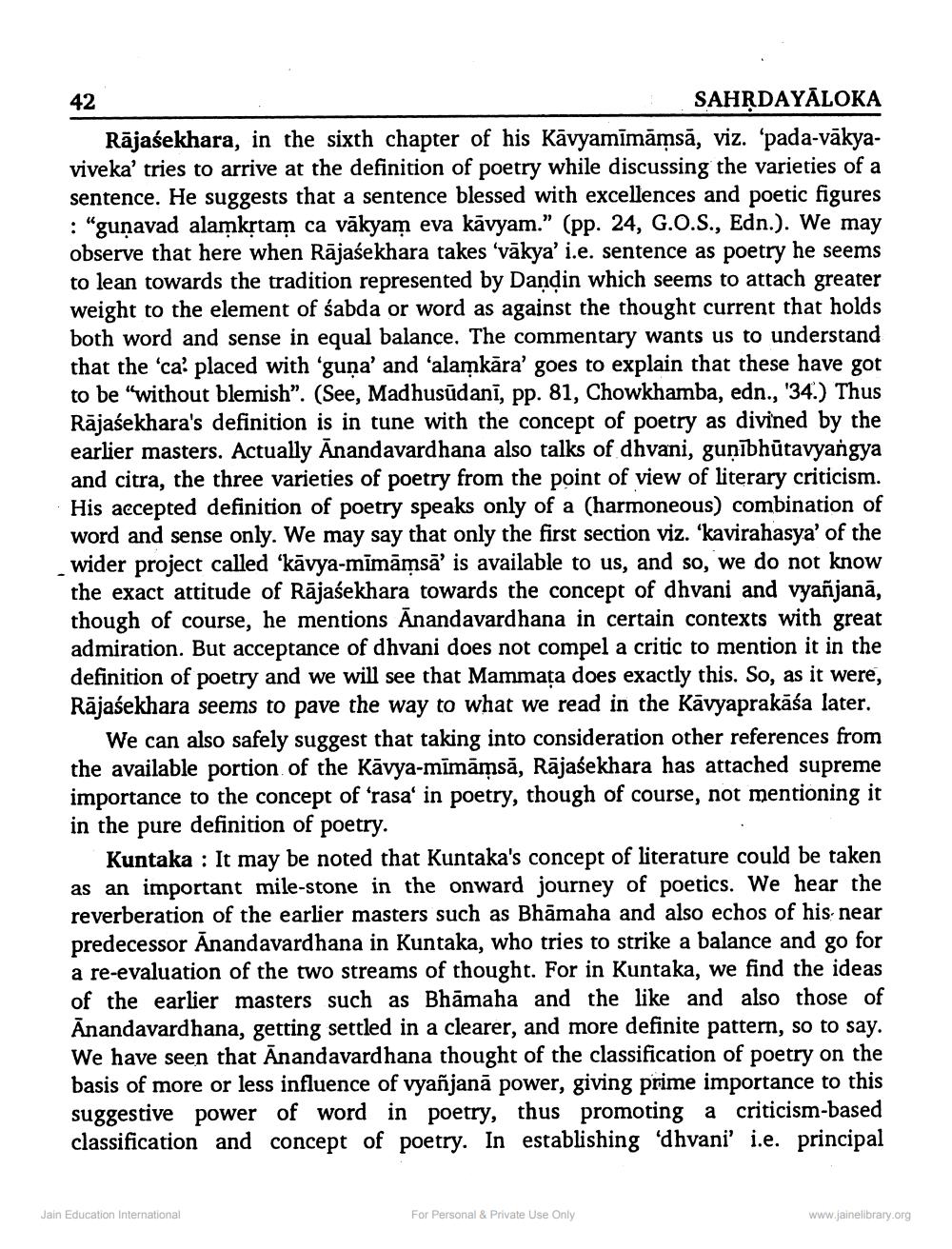________________
42
SAHRDAYĀLOKA
Rājaśekhara, in the sixth chapter of his Kāvyamīmāmsā, viz. 'pada-vākyaviveka' tries to arrive at the definition of poetry while discussing the varieties of a sentence. He suggests that a sentence blessed with excellences and poetic figures : "gunavad alamkstam ca vākyam eva kāvyam.” (pp. 24, G.O.S., Edn.). We may observe that here when Rājasekhara takes 'vākya' i.e. sentence as poetry he seems to lean towards the tradition represented by Dandin which seems to attach greater weight to the element of sabda or word as against the thought current that holds both word and sense in equal balance. The commentary wants us to understand that the 'ca: placed with 'guna' and 'alamkāra' goes to explain that these have got to be "without blemish”. (See, Madhusudanī, pp. 81, Chowkhamba, edn., '34.) Thus Rājasekhara's definition is in tune with the concept of poetry as divined by the earlier masters. Actually Anandavardhana also talks of dhvani, gunībhūtavyangya and citra, the three varieties of poetry from the point of view of literary criticism. His accepted definition of poetry speaks only of a (harmoneous) combination of word and sense only. We may say that only the first section viz. 'kavirahasya' of the wider project called 'kāvya-mīmāmsā’ is available to us, and so, we do not know the exact attitude of Rājaśekhara towards the concept of dhvani and vyañjanā, though of course, he mentions Anandavardhana in certain contexts with great admiration. But acceptance of dhvani does not compel a critic to mention it in the definition of poetry and we will see that Mammata does exactly this. So, as it were, Rājasekhara seems to pave the way to what we read in the Kävyaprakāśa later.
We can also safely suggest that taking into consideration other references from the available portion of the Kāvya-mimamsă, Rājasekhara has attached supreme importance to the concept of 'rasa' in poetry, though of course, not mentioning it in the pure definition of poetry.
Kuntaka : It may be noted that Kuntaka's concept of literature could be taken as an important mile-stone in the onward journey of poetics. We hear the reverberation of the earlier masters such as Bhāmaha and also echos of his near predecessor Anandavardhana in Kuntaka, who tries to strike a balance and go for a re-evaluation of the two streams of thought. For in Kuntaka, we find the ideas of the earlier masters such as Bhāmaha and the like and also those of Anandavardhana, getting settled in a clearer, and more definite pattern, so to say. We have seen that Anandavardhana thought of the classification of poetry on the basis of more or less influence of vyañjanā power, giving prime importance to this suggestive power of word in poetry, thus promoting a criticism-based classification and concept of poetry. In establishing 'dhvani' i.e. principal
Jain Education International
For Personal & Private Use Only
www.jainelibrary.org




